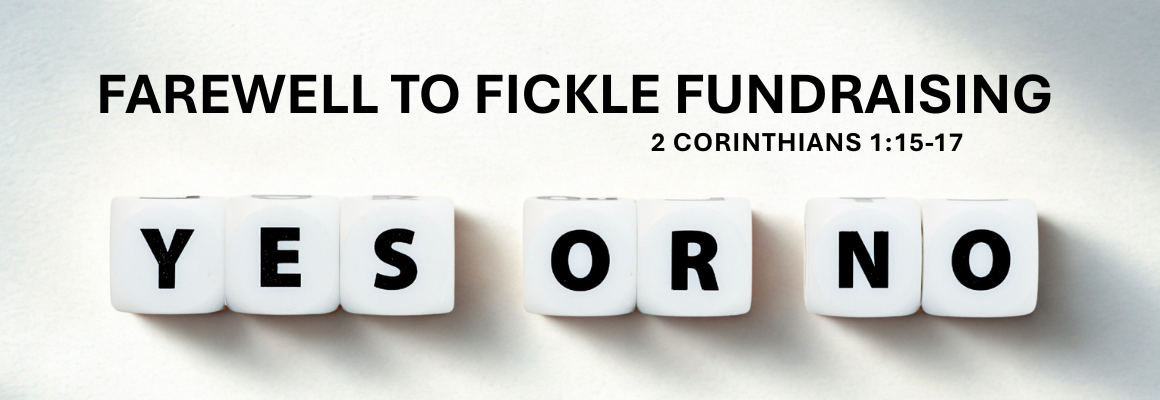Have you ever been misunderstood? Paul planned to visit Corinth on his way to Macedonia and return to Corinth before traveling to Jerusalem (see 1 Cor. 16:5-9), but his plans changed. The Corinthians were upset Paul didn’t show up and accused him of being fickle. The Cambridge English Dictionary defines fickle as “likely to change your opinion or your feelings suddenly and without a good reason.” Donors can also become disgruntled with us when they perceive we say one thing and do another. Consider these principles to avoid sending mixed messages.
Tell Them What You’re Going to Tell Them.
Paul asked the Corinthians to “send me on my way to Judea.” Earlier, Paul had asked all the churches in Macedonia and Achaia to take up a collection for the believers in Judea (1 Cor. 16:1-4). On this trip he was planning to receive their gifts and take them to Jerusalem. If you intend to ask a donor for a gift, let them know why you are coming. Be forthright and say something like, “I would love to tell you about our project and share a proposal of how you could partner with us financially.”
Tell Them.
The essence of fundraising is asking. Cultivation is a key part of the donor experience, but all your relationship-building efforts must lead to solicitation. If you want them to pray, ask for prayer. If you want their time, ask them to volunteer. If you want a gift, ask for a specific amount. If you are unsure of what amount to ask, ask if they would consider a gift in the range of $10,000, or $100,000, etc. Another strategy is to show them your gift chart and ask, “Would you prayerfully consider making a leadership gift?” You could also ask an open-ended question like, “Where do you see yourself fitting into our campaign?”
Tell Them What You Told Them.
Your donors should know exactly what you asked them to consider. When you suggest a number, you both know what you asked. Your ask might be too high or low, but stating a specific amount starts the conversation. A camp director asked a donor for a $75,000 gift for a capital campaign. The donor responded, “That’s more than I was thinking, but I like what you did. I will remember that number and ask my friends to help me raise that amount.”
Think About This: Paul was not fickle. He said what he meant and meant what he said. Just as we must speak with integrity, we want our donors to give us a clear “Yes or No.” Ask boldly and let God prompt them to give generously.
Response: Lord, help me ask clearly so my donors know exactly how they can partner with us to advance your kingdom.







